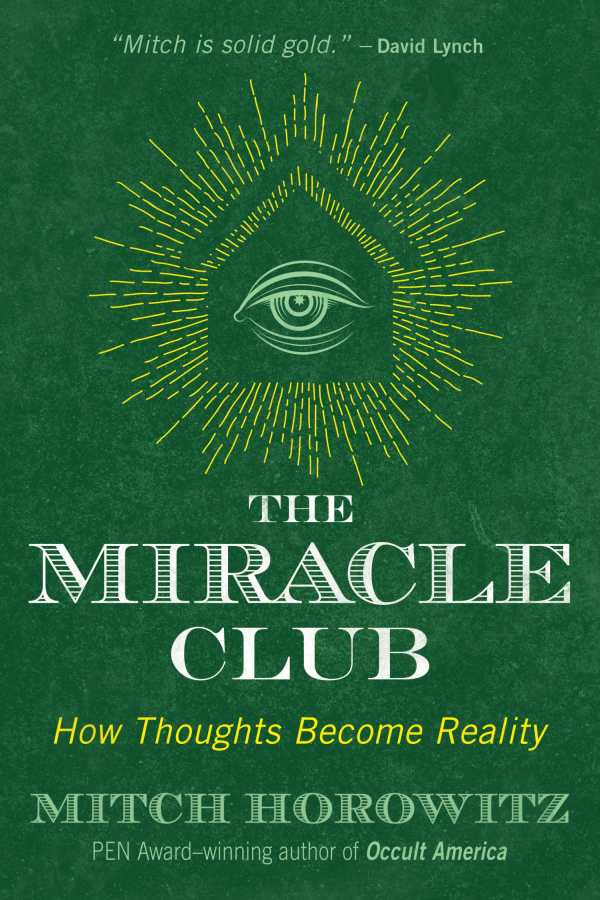The Miracle Club
How Thoughts Become Reality
In the late nineteenth century, a small group of esoteric seekers calling themselves The Miracle Club explored principles and techniques to affect reality through thought. Mitch Horowitz, a writer on alternative spirituality and a New Thought believer, explores the works of Ralph Waldo Emerson, William James, Neville Goddard, and others, together with current findings in physics and his personal experiences, to create a convincing argument that mind power, correctly used, really does work.
The last ten years or so have seen positive-thinking movements criticized—by some for claiming that the mind can actually affect reality, and by others for suggesting that faulty thinking is the cause of personal tragedies. Horowitz explains New Thought values and methods to reveal what they really teach and tackles the movement’s failure to develop a much-needed theology of suffering.
Horowitz affirms that every human being has the innate ability to bend reality toward a particular result, and that we are always using this power for good or for ill whether we are aware of it or not. Encouraging exploration, he provides understanding, exercises, and tools to make our visualizations, affirmations, and prayers effective.
To the doubters, Horowitz says that the reason we don’t see results is that few of us really know what we want, fewer are able to be single-minded about it, and fewer still take action to make it happen. The power to call forth miracles, or as he defines the word, “circumstances and events that surpass all conventional or natural expectation,” is the power of “one finely honed, exclusively focused, and passionately felt desire” that is as necessary to you as breathing. “Find this,” he writes, “and you will discover a power like none other available to you.”
Reviewed by
Kristine Morris
Disclosure: This article is not an endorsement, but a review. The publisher of this book provided free copies of the book to have their book reviewed by a professional reviewer. No fee was paid by the publisher for this review. Foreword Reviews only recommends books that we love. Foreword Magazine, Inc. is disclosing this in accordance with the Federal Trade Commission’s 16 CFR, Part 255.

